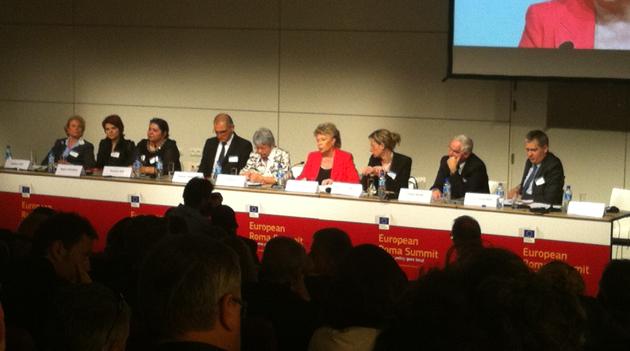David Beňák: Roma Summit showed places in Europe where things work

The EU Roma Summit in Brussels on 4 April brought together representatives of the European Commission, governments, municipalities, nonprofit organizations, and Romani people themselves, some of whom had the opportunity of presenting on the day’s panels. The summit was addressed by European Commission President José Manuel Barroso, Vice President Viviane Reding, Commissioner László Andor and Commissioner Androulla Vassiliou, demonstrating that some EU politicians are aware this topic exists and is of importance.
Czech Minister Jiří Dienstbier also presented at the summit, and given that he has only been in office about two months, his presentation showed that he is doing his best to get an overview of this issue. Dienstbier pointed out that at the level of the Czech Government there are many arrears on this issue and said the Czech Government Inter-Ministerial Commission for Roma Community Affairs would be renewed.
A certain invisible string was plucked at different times throughout the day consisting of sighs over the fact that while many summits have already happened and many conceptual documents have already been compiled, specific Romani individuals have not been helped in any essential way with their poverty. This may have not been exactly fair with respect to the EU Roma Summit, but on the other hand, opportunities to express such opinions and have key politicians hear them are very rare.
The summit was successful in one thing in particular: It brought many interesting, prestigious people into the same room. However, it did not lead to the creation of any obligations on the part of the European Commission toward Romani inclusion.
Another thing the summit did was to point out that there are places in Europe where things work. There were, however, no miracle discoveries during the day.
A very important question remained unanswered: What should be done where there is no political will to address these issues? Even though this was a rather grand meeting, politicians throughout the EU should not expect that Romani people will now be happily running around expressing sincere gratitude to them.
The action plans, concepts and reports written to date unfortunately have not yet led to the creation of the chance to live a happy, normal life. I dare say that is the idea held by all Romani people about how such policy should impact us.